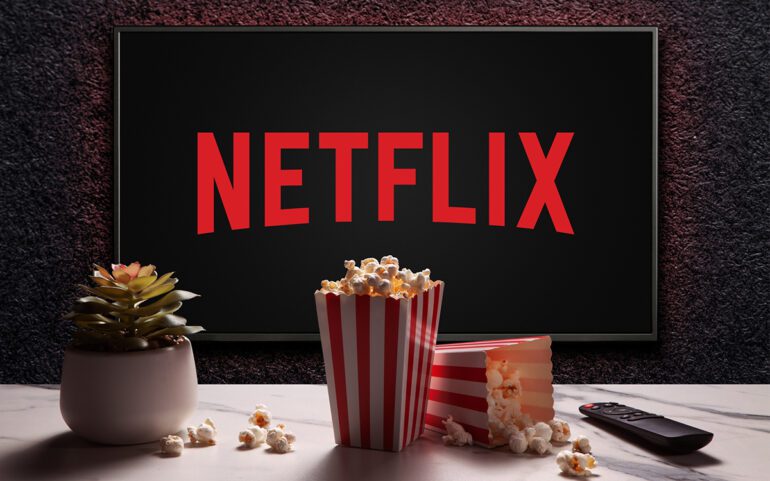TL;DR:
- Netflix adds generative AI to its annual report’s risk factors, highlighting its growing influence in Hollywood.
- The report acknowledges the rapid evolution of AI technology and the potential competitive advantages it offers.
- Netflix also addresses potential intellectual property challenges arising from the adoption of emerging technologies.
- COVID-19 related risks, present in previous reports, have been removed from the 2023 annual report.
- Hollywood unions, WGA and SAG-AFTRA, strike due to concerns over AI’s impact on the industry.
- Agreements reached with the unions include safeguards and limitations on AI usage in creative processes.
- Netflix faces criticism during the strike for a high-paying AI-related job listing.
Main AI News:
In a strategic move that underscores the burgeoning impact of artificial intelligence on the entertainment industry, Netflix has introduced generative AI into its annual report, filed with the SEC. This development signifies the ever-evolving landscape of Hollywood, where technological advancements are reshaping the competitive dynamics.
Within Netflix’s comprehensive 10-K report, the company has integrated a fresh segment into the existing risk factors, mandated by SEC regulations, under the video competition section. It articulates, “[N]ew technological developments, including the development and utilization of generative artificial intelligence, are rapidly advancing. If our competitors gain a competitive edge through the application of such technologies, it could potentially undermine our capacity to compete effectively, impacting our operational outcomes adversely.”
Netflix’s revised report also addresses another critical facet: “Furthermore, the incorporation or adoption of novel and emerging technologies may heighten our susceptibility to intellectual property claims, with uncertainties surrounding the availability of copyright and other intellectual property protections for AI-generated content.”
Notably, apart from these additions, the risk factors encompassed within Netflix’s 10-K report for the year 2023, spanning over 10,000 words, have largely remained unaltered. A significant alteration, however, is the removal of sections previously present in the 2022 report, which outlined the risks posed by the ongoing COVID-19 pandemic. These sections, present in the 2021 and 2020 10-K reports as well, highlighted the pandemic’s disruptive impact on Netflix’s operations, cost structure, content release schedules, and its potential to affect business and financial results.
While these amendments concerning generative AI are relatively modest in scale when considering the comprehensive risk landscape companies like Netflix must convey to their investors, the use of AI in the entertainment industry has recently become a contentious issue. In 2023, two prominent Hollywood unions, the Writers Guild of America (WGA) and the Screen Actors Guild‐American Federation of Television and Radio Artists (SAG-AFTRA), embarked on a strike, primarily due to concerns over AI’s potential to erode their livelihoods.
The WGA’s agreement includes safeguards around the deployment of generative AI in creative processes, granting the union the authority to contest the utilization of writers’ existing work for AI software training. Meanwhile, SAG-AFTRA’s agreement with studios partially addresses union demands regarding AI, permitting AI models to learn from actors’ performances to create synthetic characters. However, actors can only intervene if the final output features their recognizable facial attributes.
During the writers’ strike, Netflix drew criticism on picket lines for a job listing in its machine-learning group, offering a salary range between $300,000 and $900,000. Despite being centered on AI advancements for content personalization and payment-processing optimization, rather than generative AI projects, the posting became a focal point for discontent among striking union members.
Conclusion:
Netflix’s inclusion of generative AI in its annual report reflects the transformative influence of AI on the entertainment industry. The company’s proactive approach to acknowledging AI-related risks and intellectual property challenges underscores the need for adaptability in an evolving market. The strike by Hollywood unions underscores the industry’s concerns regarding AI’s potential impact on livelihoods, highlighting the importance of responsible AI integration in the creative process.

